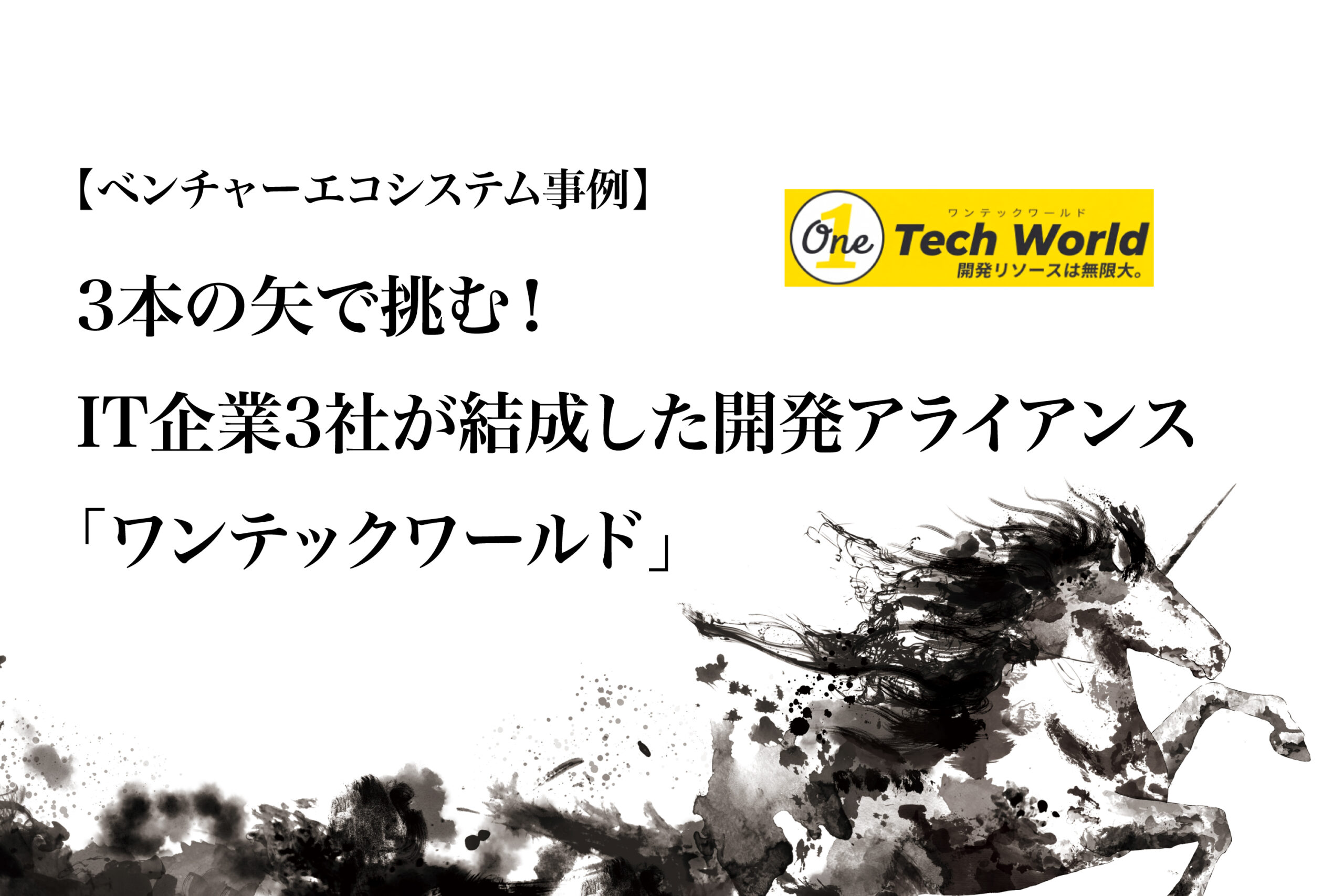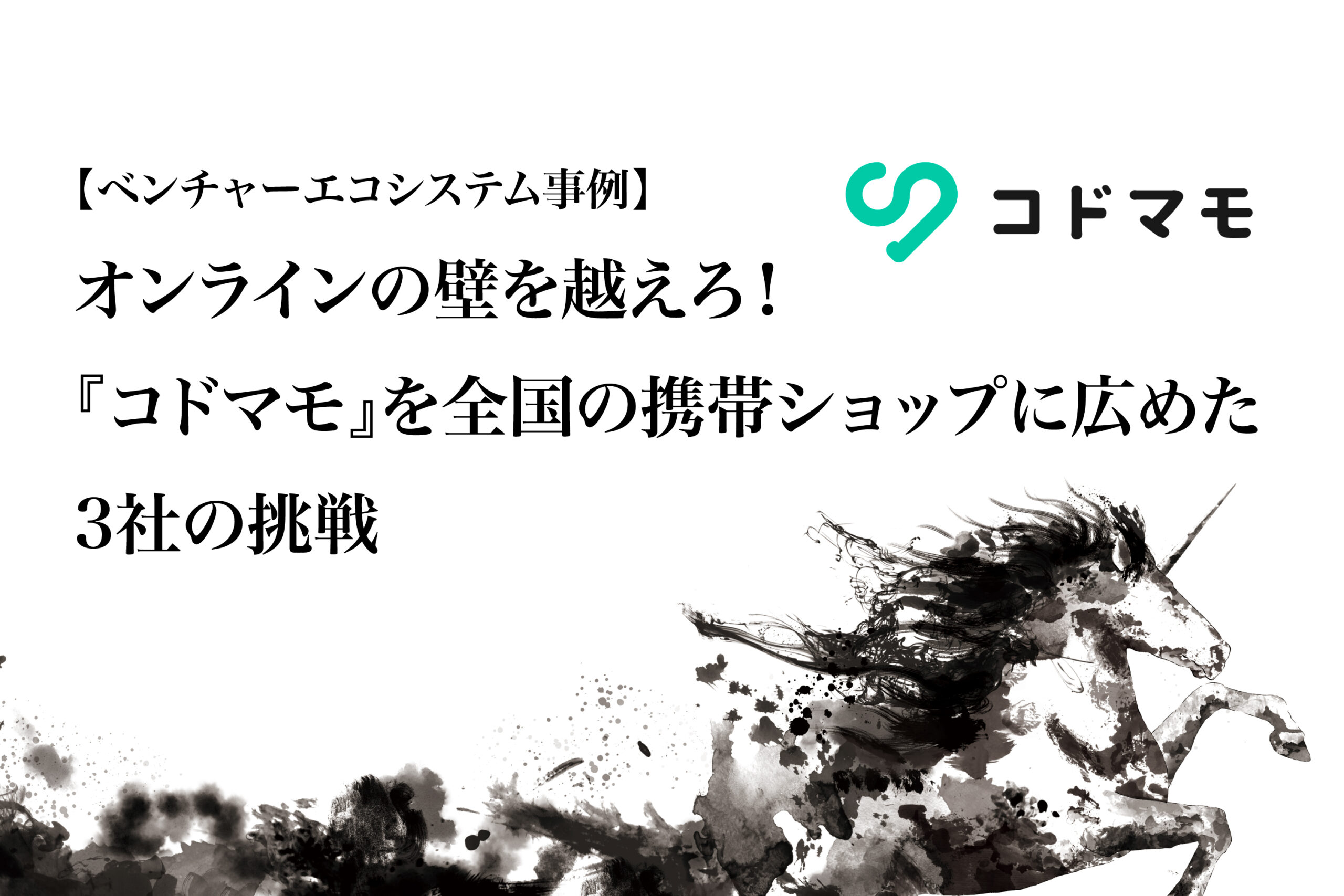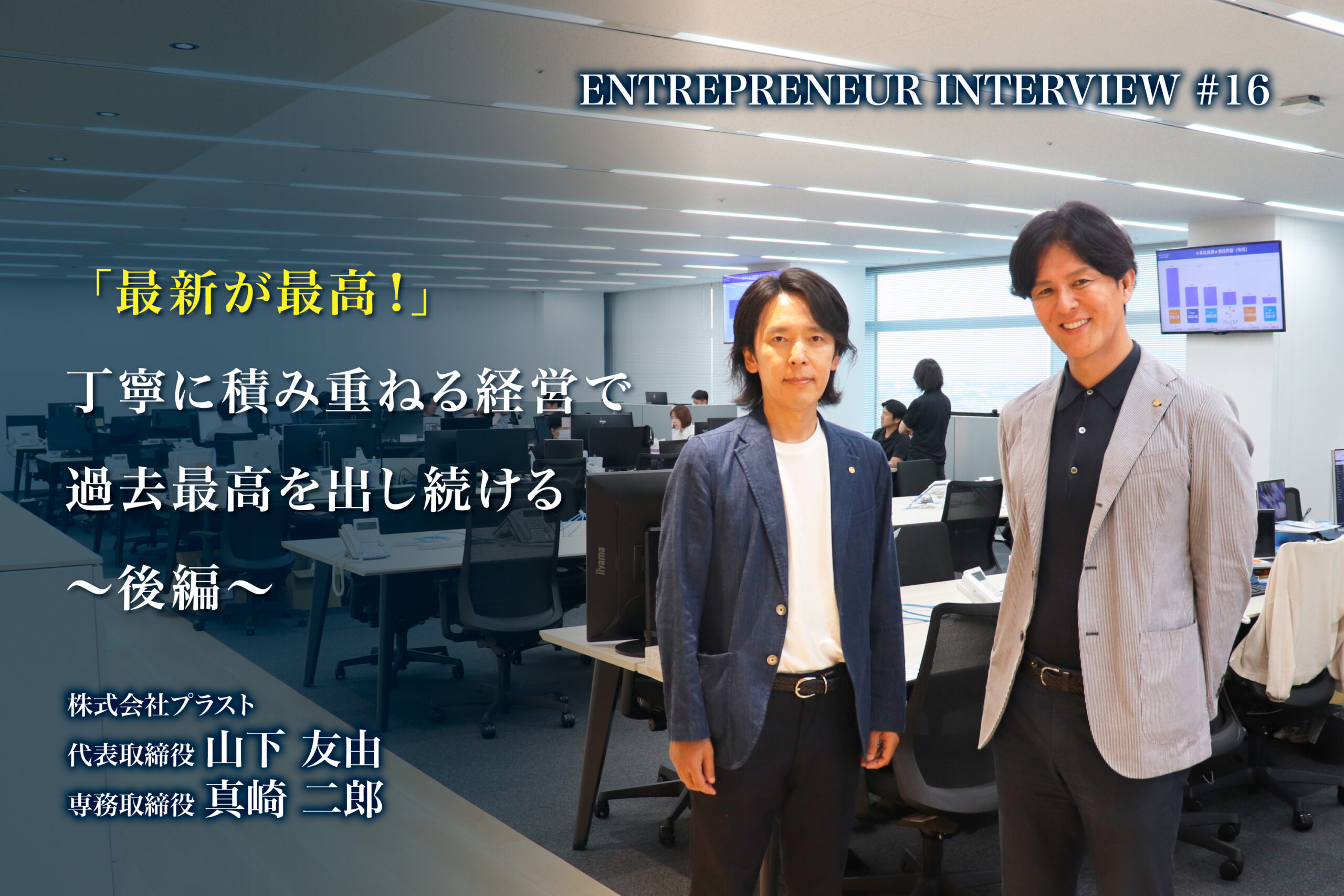
Tackling the Development of the Next Generation to Further Invigorate Japan’s IT Sector
D-POPS GROUP has 23 group companies that we call partners (at the time of publication).
For this article, we interviewed Co-president & COO Akio Nishikawa and Co-president & CFO Yorito Matsutani of @Solution, which joined D-POPS GROUP in 2021. (This interview was conducted in April 2025.)
◆Business Overview
Sugihara:
Today, we have the pleasure of interviewing @Solution’s Co-president and COO Akio Nishikawa, and Co-president and CFO Yorito Matsutani. Thank you for your time.
To start, could you please give us an overview of @Solution’s business?
Nishikawa:
We are a system development company. Our two main businesses are arranging development contracts and running a System Engineering Service (SES).
To explain in more detail, we offer services such as mobile application development, web system development, and infrastructure platform construction.
Sugihara:
Next, could you each describe your respective roles?
Nishikawa:
My primary focus is on overall sales. I mainly concentrate on smoothly running both of our core existing businesses: contract development and SES.
Sugihara:
And what is your role, Co-president Matsutani?
Matsutani:
I am fundamentally in charge of overall back-office operations. My main areas are management, administration, and recruitment. I also handle new business development, strategy, and the management of key business metrics.
Sugihara:
Ahh, I see! A perfect balance of offense and defense. Could you tell us about the circumstances behind each of you joining the company?
Nishikawa:
Certainly. I joined the company in 2006. Since joining, I have always been involved in writing code.
@Solution was established in July 2005, so I joined shortly after its founding.
Matsutani:
I joined in February 2022, so this is my fourth year here.
Sugihara:
Incidentally, when did @Solution join D-POPS GROUP?
Matsutani:
In June 2021.
Sugihara:
So, Co-president Matsutani, you joined quite soon after the company became part of D-POPS GROUP.
You and Co-president Nishikawa assumed the roles of COO and CFO in September 2023. Could you describe how things have changed since @Solution joined D-POPS GROUP and since the two of you assumed your current positions?
Nishikawa:
First, I honestly feel surprised that it’s already been four years since we joined the D-POPS GROUP.
In these four years, we’ve faced various issues from outside and inside of our company, including project-related problems. It feels as if a full decade has passed because of all the experiences we’ve gained—it’s been incredibly eventful.
Matsutani:
For me, it went by in a flash. I can’t believe four years have already passed.
I was a cram school teacher for three years at the company I joined out of university, then I moved to Recruit before joining @Solution. This is the longest I have ever stayed at a company, but these four years have truly flown by.
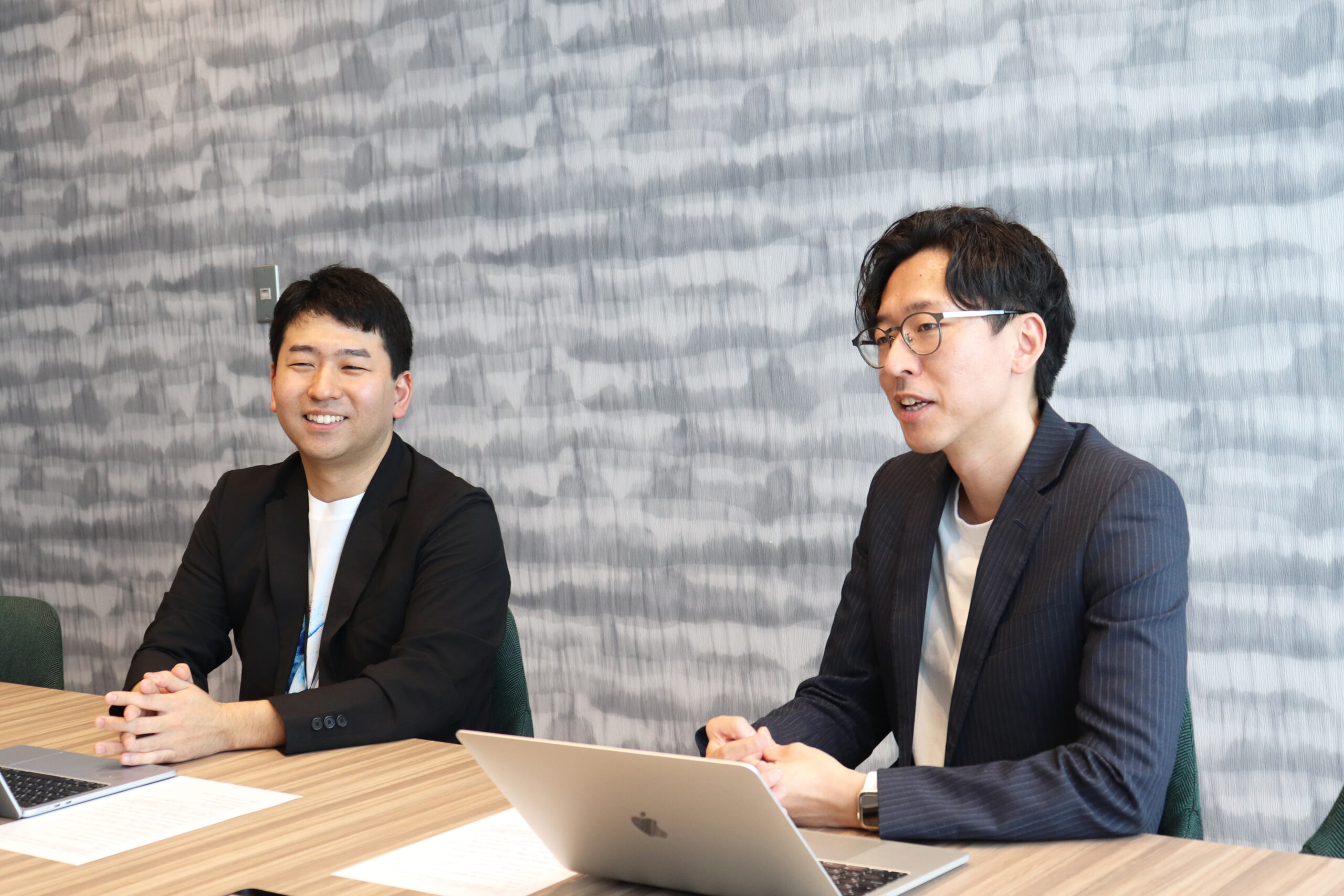
◆The Company’s Early Days
Sugihara:
Co-president Nishikawa, you’ve been with @Solution for nearly 20 years. What was the company like originally?
Nishikawa:
I don’t believe it’s changed much from what it was before. The company was originally founded by just three people: President Masuda, Director Taniguchi, and an employee named Kusunoki. Because there was such a small number of people, they started out by focusing on SES and recruited workers on a project-by-project basis.
Sugihara:
So, it seems the founding members are still with the company and continue to provide strong support.
Currently, you both serve as co-president alongside President Masuda, the founder and CEO. Beyond the trust you have clearly built with President Masuda, there seems to be a strong mutual trust between the two of you, Co-president Nishikawa and Co-president Matsutani. What philosophy guides you in managing the company under this system of multiple representative directors? Do you have specific role divisions?
Nishikawa:
I think our role division comes down to our strengths and weaknesses. I strongly feel that each of us possesses what the other lacks. In addition to that, even without putting things into words, our ideas are usually very close, which I feel is a significant advantage.
Especially for me, despite being an engineer, I am terrible with numbers, ha ha. Co-president Matsutani is quite good with numbers, so I put a lot of faith in him.
Matsutani:
Since I joined later, I have a strong commitment to strengthening the existing structure, knowing that it was built by President Masuda and the members who joined him.
Given that Co-president Nishikawa has supported the company since joining right out of university, I believe the company will naturally evolve under his leadership. Mine is more of a supportive role, to ensure that direction is successfully implemented and scaled up.
So, while I do contribute ideas, I have made it a personal rule that any major strategic change in company direction must be decided by Co-president Nishikawa.
I also do things like controlling our sales, general, and administrative (SG&A) expenses.
Sugihara:
Then your roles are very well-defined. By the way, Co-president Nishikawa, are you naturally a strong type of leader?
Nishikawa:
Ha, I wouldn’t say so. I am more of a people person, the kind who enjoys communicating over drinks. I’ve been fortunate to forge many connections in that sort of setting, and those connections often seem to become business opportunities, which makes me feel truly grateful to those around me.
One such connection that has continued since those early days, particularly with agencies, resulted in the long-term contracts we’ve received from Hakuhodo Group.
Matsutani:
But that’s just one example. In fact, the majority of our in-house project contracts are the result of an introduction from Co-president Nishikawa. To put it in pure sales terms, approximately 40% of our sales come from his connections and referrals.
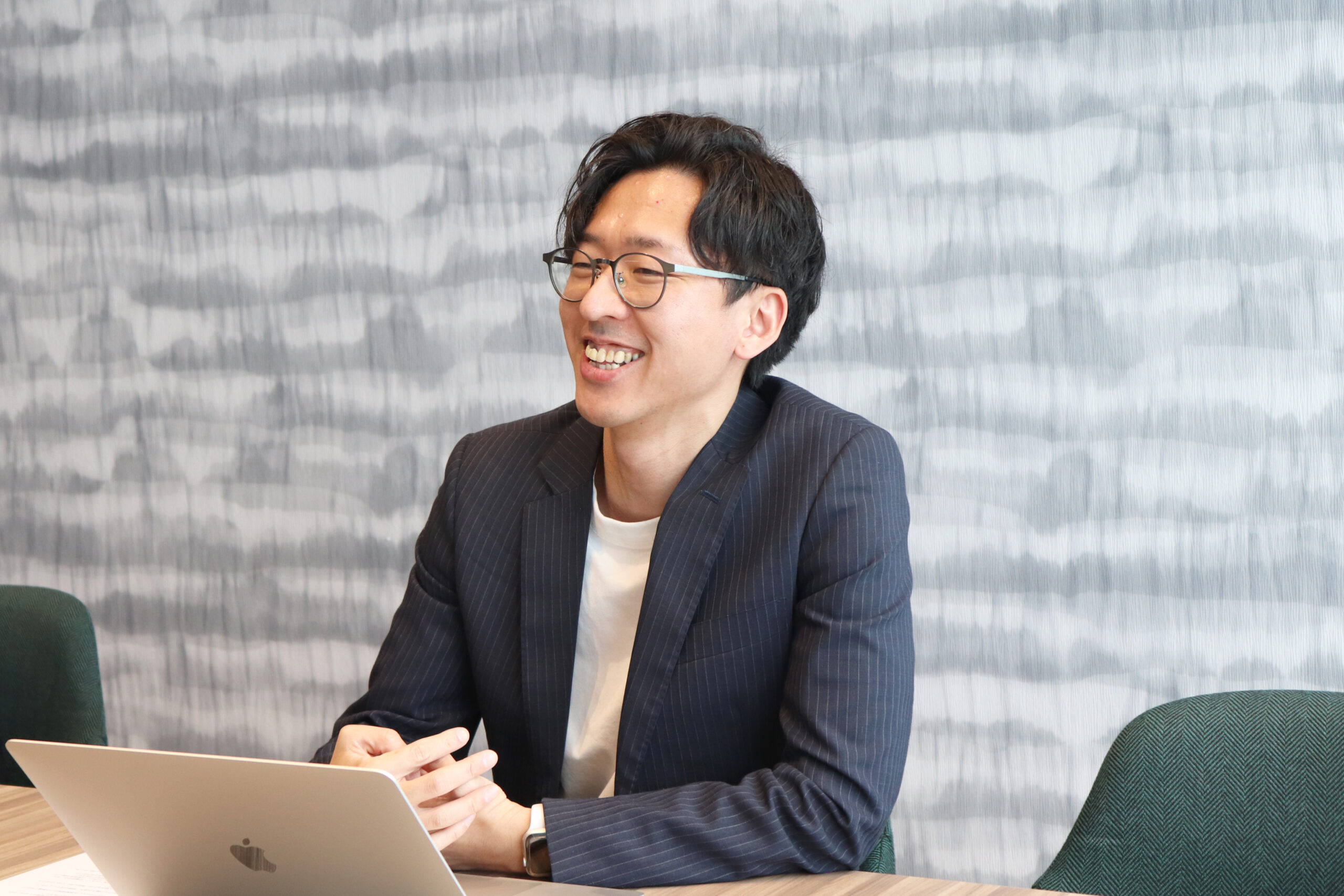
◆“Developing the Next Generation”
Sugihara:
No matter how advanced the technology, in the end, it’s essential to have people on your side. Now, I’d like to ask a little about your business. Could you explain your management philosophy, “Developing the Next Generation”?
Nishikawa:
This concept was originally devised by President Masuda.
When the company was founded in July 2005, the IT industry had just finished weathering the bubble of the early 2000s. It was the dawn of what was called Web 2.0, a time when services and people were beginning to connect around the world.
As much as the job of a programmer can be seen as cool or popular now, the prevailing image back then was much more “geeky”.
At the time, President Masuda felt strongly that the age of IT was coming soon, and that it would be necessary to learn technical skills. The ultimate goal was to foster talent so that even if they moved on from @Solution to another company, they would be globally employable because they had a solid foundation in basic IT skills. This desire to educate and nurture talent is the core idea behind our management philosophy, “Developing the Next Generation”.
◆Current Business Focus
Sugihara:
So, your management philosophy is about fostering the next generation of professionals.
Which business area are you currently focusing on the most?
Nishikawa:
We are currently in a period of transition. We are strongly committed to leading the way in AI utilization, creating new AI-related businesses, and providing support services. Our focus is shifting from simply accepting contracts or outsourcing personnel through SES to concentrating on how we can utilize AI to create new systems and structures.
Matsutani:
I’d say the same thing, but I’d add that our current main focus is on finding contracts for dedicated development teams (DDT). We concentrate on providing smooth operation, maintenance, and development by having customers who already have an app or service switch to us from their original development provider. We’ve been focusing on this since last year.
Moving forward from there, with the growing trend of AI utilization, our goal is to first use AI internally to boost efficiency and understand the underlying mechanisms. Then, we can proactively propose to our clients how to best implement AI within their applications or even how AI can be used to optimize the overall efficiency of their entire company, not just the users of their apps. We want to continuously increase the value we provide in this way.
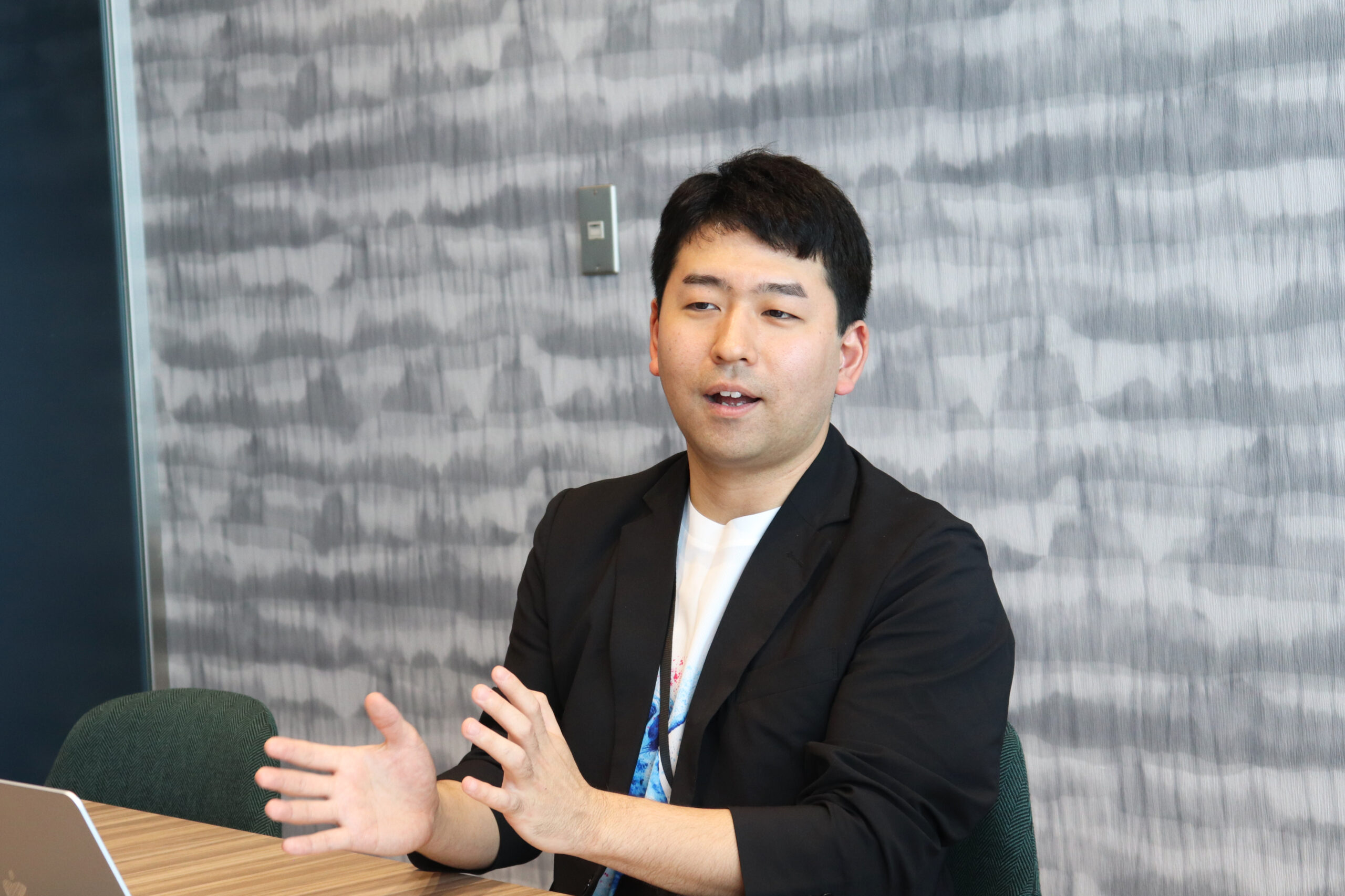
Sugihara:
As generative AI becomes increasingly sophisticated, some people are saying that the engineering profession will become obsolete. What are your thoughts on this?
Nishikawa:
When ChatGPT was released, it was about two and a half years ago, right? Honestly, at that time, I was pretty depressed. Thinking that the industry—and my own job—might eventually disappear made me feel extremely pessimistic.
However, my perspective has recently shifted. Now, I’m focused on figuring out how to use such tools effectively from an engineering standpoint, since they already exist.
No matter which generative AI you use, you have to get used to such technology in order to utilize it well. We believe that we are the ones who can come alongside and support those who are unfamiliar with it, so we are going to continue devising methods of doing that.
(To be continued)
Interview conducted by D-POPS GROUP’s advisor Genta Sugihara.
@SOLUTION
Co-president & CEO: Katsuto Masuda
Co-president & COO: Akio Nishikawa
Co-president & CFO: Yorito Matsutani
Address: 32F Shibuya Hikarie, 2-21-1 Shibuya, Shibuya-ku, Tokyo
Established: July 2005
Website: https://atmarksol.jp/
Next, in the latter part of the interview, we discuss:
・Greatest strengths and features
・Recruitment
・“Realizing a Venture Ecosystem”
・5-year vision and challenges associated with that
・And other topics
Be sure to check it out here:
https://d-pops-group.co.jp/en/column/atmarksol-interview-latter-part/




